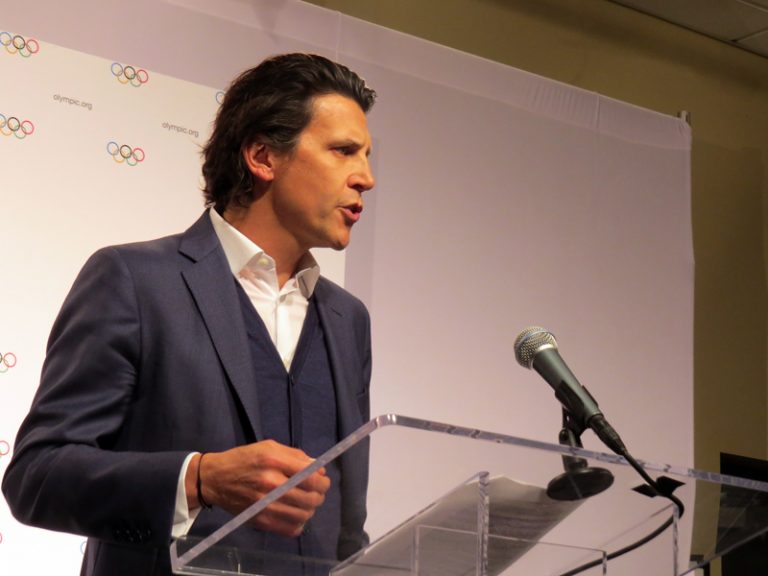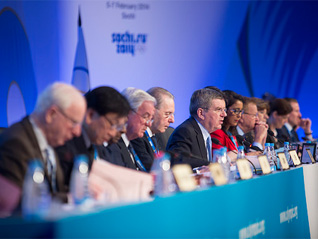A majority of cities interested in staging major international sports events say they have missed out on key opportunities because they were unaware that the adapted dialogue-style process was open to select the host.

According to a new survey released by specialized Swiss communications firm BCW Sports, while 56 percent of 100 cities asked said they prefer the new site selection approach over the traditional bidding structure (at 31 percent), 57 percent admitted they missed out on an event they were interested in because of lack of clarity around the process.
In 2019 the International Olympic Committee (IOC) led the way by reforming their decades-old approach to allocating the Olympic and Paralympic Games by doing away with the highly structured battle royale style competition and replacing it with shrouded dialogue and flexibility where IOC executives ultimately name compatible bids to elect. With no fixed timetables or milestones, those outside the process can only guess what’s going on.
When first activated last year, the new process was widely criticized as Australia’s Brisbane was unexpectedly chosen host city for the 2032 Olympics eleven years in advance and from among several cities that had expressed interest. As many as five rivals who were already preparing campaigns were caught on their heels, a few facing domestic criticism for being unprepared. Nations such as Indonesia, India, Qatar and South Korea have queued again for 2036 and on Saturday German sport officials will vote on whether to bid again.
Of those asked, almost 80 percent said the type of process used by rightsholders had a “high or medium influence on their decision to pursue an event” and that “key factors in their decision making are transparency and trust in the process being used and the timeline of the process,” according to the BCW Sports survey report.
Comments provided by respondents revealed “host cities would like to be aware of the timing for the beginning and end of a process and be given sufficient time so they can consider whether they would like to get involved.”
The respondents underlined the need for transparency throughout the process including with timelines; who the decision makers are and the criteria; and whether there is already a de facto decision in place when the process was opened.
Australian IOC member John Coates spearheaded the development of the new Olympic bid process, later causing suspicion that Brisbane had already been positioned for election even as other cities entered the race.
In support of the dialogue-based approach, respondents most value the opportunity to influence the rights holders’ requirements and the ability to learn and develop the project through the open discussion – each earning 32 percent “most important”. Cost savings ranked third at 24 percent.
Interestingly only 11 percent chose “no public loss when not appointed as the host,” one of the key goals of the new process proposed by IOC President Thomas Bach when he famously said the old bid-based system produced “too many losers.” However 47 percent said they have decided against a bid based on a poor experience from a past unsuccessful bid. After winning a competitive bid, 64 percent said it was easier to generate interest for hosting a subsequent event.
Respondents most valued the transparency (31 percent) and clear process timelines (29 percent) of the traditional bidding process, with one of those surveyed commenting that these could be incorporated in the dialogue-based approach.
The IOC is currently focused on bids to stage the 2030 Winter Games with aspiring second-time hosts Sapporo in Japan and Salt Lake City in Utah in an apparent two horse race. Though no timelines are official and the IOC is refusing to release details of those involved in dialogue, Bach had said earlier this year that the Executive Board would announce preferred candidates by December 7.
But earlier this year the proposed election date in May 2023 was postponed to October, and bids from Barcelona in Spain and Vancouver in Canada stepped back from competition. The United States Olympic and Paralympic Committee (USOPC) prefers Salt Lake City host in 2034, not 2030, in order to build a gap following the Los Angeles 2024 Summer Games in the U.S. – and Sapporo is currently in the dark shadow of a Tokyo 2020 corruption scandal.
As a result, the IOC has hinted that the Future Host Commission charged with recommending sites will delay its decision until the spring, casting further uncertainty in the race.
The 2036 Summer Games race is also heating up with the IOC only revealing that “several cities” are involved in discussions. Bach said earlier this year that he will let his successor name the winner of that race – his term ends in 2025.
The site selection process varies widely across major global events. Last year the 2030 Asian Games were awarded to Doha through a traditional process that resulted in the Qatari capital defeating Riyadh, Saudi Arabia in a member vote. The latter was allocated the 2034 edition following the election. FIFA will also stick to the traditional process when it elects the 2030 Football World Cup host at its Congress in 2024.
In April, the Commonwealth Games Federation (CGF) named its 2026 host Victoria in Australia through dialogue after an expected bid process failed when interested hosts didn’t emerge.





